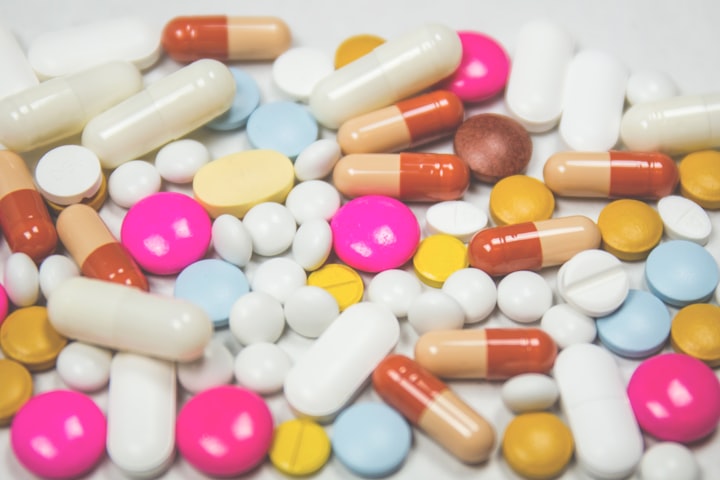18 Things That Affect Diabetics' Blood Sugar Levels
There are hundreds of things that could lower or raise blood sugar levels that diabetics may not know about.

Most diabetics know that sugar will raise their blood sugar levels more quickly than other carbohydrates. However, sugar and carbohydrates are not the only things that will keep a blood sugar level from being normal.
It might surprise you that there are about hundreds of things that could affect blood sugar levels, and many of them have nothing to do with eating or drinking. Some of those factors are not in your control.
You will be highly surprised to find out some of the things that affect your blood sugar level to cause it to be too low or too high.
1. The Weather
Don't think this is a myth, but the weather can affect your blood sugar level. Both cold and hot temperatures can put additional strain on the body that could cause a diabetic's blood sugar to go up or down. That's because the body will use extra energy to stay warm when it is cold. The body will also use more energy than usual to cool down when the weather is hot.
2. Illness
Don't expect your blood sugar level to be normal when you are sick or have an infection. Your body will fight off the illness, and your blood sugar level will go down because you might eat less during that time. The infection might also cause you to vomit, have diarrhea or sweat. Those activities are bound to lower your blood sugar level.
3. Hormones
Have you ever gone to bed within range and woke up with a blood sugar level much higher than normal? This happens frequently to some people with diabetes. That is called the dawn phenomenon because it is a surge of unavoidable hormones that come around 4:00-5:00 a.m. A woman's blood sugar changes when her hormones change.
4. Stress
If you have been careful with your diet and exercise and your blood sugar rises above its normal range, perhaps it is because of stress. Therefore, learn to relax with deep breathing exercises. Also, try to avoid as much stress as possible.

5. Sleep
Getting a full night of sleep is especially good for diabetics. Not enough sleep can cause blood sugar levels to rise. Blood sugar can also drop extremely low during sleep for some diabetics, especially if they take insulin. A bedtime snack may help in that case. Check your levels at bedtime and when you first wake up.
6. Diet
A diet is the first thing that concerns diabetics. High-fat foods can make their blood sugar to rise. Eating pizza, French fries, and other foods have a lot of carbs and fat. Check your blood sugar about 2 hours after you eat to know which foods affect you the most.
Many sugar-free foods will raise your blood sugar levels because even though they are said to be sugar-free, they may still have plenty of carbs from starches.
7. Skipping Meals
Diabetics should eat every two hours to maintain a balanced blood sugar level. Not eating regularly is just as bad as overeating. Diabetics should not skip meals, eat less than normal, or eat later than usual. They should keep snacks with them if they are not going to be home when it is time to eat.
Try not to skip any meals. If you skip breakfast, your blood sugar will be spike after both lunch and dinner.

8. Water
Everyone should drink water during the day, and it is especially important for diabetics to do so. When diabetics don't drink enough water, they become dehydrated and can experience blood sugar spikes. Drinking water will flush out excess sugar in your bloodstream. Therefore, stick to water instead of consuming sugary drinks. Not enough water in your body means a higher blood sugar level.
9. Caffeine
Excessive amounts of caffeine affect a diabetic's blood sugar level. The Mayo Clinic says caffeine can lower and raise blood sugar levels. Don't think caffeine is only in coffee. It is is also in sodas, energy drinks, black tea, and green tea. It is ironic that too much caffeine is dangerous for diabetics, but it lowers the risk of diabetes in healthy people.
10. Artificial Sweeteners
Some artificial sweeteners can cause blood sugar levels to increase, and some of them don't. It is best to figure out which ones cause blood sugar levels to go higher. Check your blood sugar levels when trying a new sweetener.
11. Exercise
Exercise can affect your blood sugar levels causing it to go up or down. Excess physical activity without eating enough can cause a drop in blood sugar levels.

12. Medications
Some medications will affect your blood sugar level. Also, not taking your medication at your normal time can lead to a low blood sugar level.
Decongestants that have phenylephrine or pseudoephedrine can raise blood sugar. Cold medicines sometimes have a little sugar and a small amount of alcohol in them. Even a cough drop can raise your blood sugar level. Thankfully, antihistamines don't usually cause a problem with blood sugars.
13. Alcohol
Drinking too much alcohol is not a good activity for diabetes even though it is not entirely off-limits. The American Diabetes Association advises women with diabetes to drink no more than one drink a day. Men with diabetes can safely have two drinks a day. One drink is 12 ounces of beer, 5 ounces of wine, and or 1 1/2 ounces of liquor, such as vodka or whiskey.
Alcoholic drinks will raise blood sugar levels because they contain plenty of carbs. Hours after drinking, blood sugar may drop. If you have an alcoholic drink, make sure you eat food and check your blood sugar.
14. Birth Control Pills
The American Diabetes Association says some birth control pills are safe for women who have diabetes. Birth control shots and implants are also safe even though they can affect blood sugar levels.
15. Household Chores
If your blood sugar is high, clean your house or mow the lawn. Those exercises will lower your blood sugar. The chores count as moderate physical activity. Those two forms of exercise help to keep your blood sugar balanced in addition to keeping your house and lawn looking good.
16. Excitement
Being excited can affect your blood sugar levels. When people get overly excited, their blood sugar levels can rise. Like stress, getting too excited causes adrenaline to be released which can cause sugar levels to spike.
17. See a Dentist
Diabetes is harder to control if a person has dental problems. Gum disease can cause blood sugar to rise. See a dentist at least twice a year.
18. Get Eyes Checked
Diabetes affects every part of your body, including the eyes. The disease increases the risk for eye conditions, such as cataracts and glaucoma.
About the Creator
Margaret Minnicks
Margaret Minnicks shares articles with readers all over the world. Topics include celebrities, royal family, movies, television, foods, drinks, health issues, and other interesting things. Thanks in advance for TIPS that are sent my way.






Comments
There are no comments for this story
Be the first to respond and start the conversation.